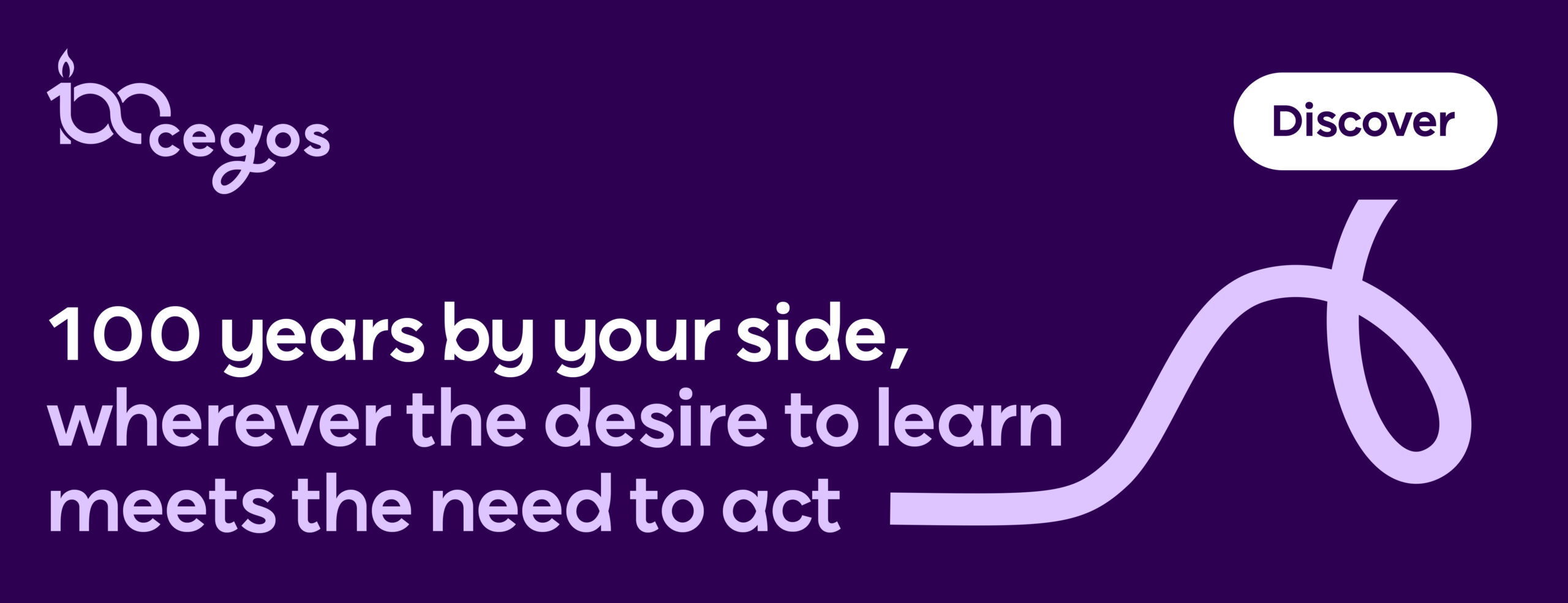
A recent report by Cegos Group – “Diversity and inclusion in organisations: the skills-related challenges of a cultural transformation” – found that 82% of respondents from seven countries have experienced or witnessed some form of discrimination in the workplace.
Diversity, Equity, Inclusion and Belonging (DEIB) has long been a hot topic among the world business community. Big organisations on down trumpet their inclusive policies, sponsor events and market themselves as allies and supporters. Yet discrimination is still prevalent, even if some progress has been made.

DEIB challenges
Why is this? There is no doubting the goodwill of many leaders and managers in making their working environment as inclusive and diverse as possible. But they face, in practise, challenges in promoting positive change in the lives of their employees along with the diverse makeup of their companies.
“Managers are not investing in transforming the necessary processes into reality, especially when it comes to recruitment, marketing and communication,” says Mario Stofenmacher, Development Director at FranklinCovey, a division of Cegos Spain. “So, they are not aligning the strategic narrative with the vision, mission and values of their company.”
A need for awareness
There are various reasons for the lack of coherent action. Chief among them is that managers are not sure what to do. They hear they need to be more inclusive and diverse – or are bound by law – but lack the understanding of how to implement policy in an effective way.
“We see this a lot with disability quotas,” says Chiara Elisabetta Barbieri, DEIB Practice Leader at Cegos Italia. “Many just see it as a quota to follow but fail to see how employing people with disabilities is an opportunity. It is all about perspective. Change management needs high level commitment. But it’s not easy to understand how to work on that without being superficial.”
By and large, managers fully understand the reasoning behind DEIB as a concept. They just need more guidance and resources to turn that concept into reality. They also need a change in perspective, to actively give opportunities to minorities, rather than just tick the quota box by recruiting them.
Benefits of DEIB
Companies that are successful in meeting the demands of DEIB quickly see the benefits, especially when recruiting talent. The majority of today’s employees are attracted to working in a diverse community – whether they belong to a minority group or not – as they get to mix with colleagues who have a range of experiences and viewpoints. Certainly, talent from minority groups will be attracted to employment where they are valued and respected.
Have different people think differently
Mario Stofenmacher thinks a diversity of thinking benefits managers more than they realise. However, there seems to be a reluctance to bring in people likely to challenge the status quo.
“We need to diversify excellence and innovation,” he says. “Managers prefer to employ people who think like them because it re-enforces their ideas. However, it is better to hire someone who will challenge them and offer new ways of doing things. Have different people thinking differently. Managers should be open to listening to a variety of viewpoints and ideas from their teams. It’s a real challenge and requires a change of mindset.”
A time for action
So, the difficulties and benefits of implementing effective DEIB policies are evident. But what can managers actually do that results in real and lasting change?
“Managers must see DEIB as a business challenge,” says Joana Silva, Trainer, Coach and Mentor at Crescimentum. “Misunderstandings can be caused by bias, but leaders cannot solve issues of diversity with just a conversation about feelings or by exercising empathy. They need to use appropriate management tools and change the company's culture.”
Joana has come up with five ‘next steps’ for leaders to follow.
1) Include DEIB as part of strategic business objective
Develop inclusive people management policies, guidelines and practices that support the business strategy, and set goals.
2) Define metrics and evidence for measuring progress
Ensure metrics reflect not just how the company meets minority quotas but how it closely aligns recruitment and productivity objectives with business results.
3) Understand how bias plays out in everyday workplace interactions
Managers need to learn how to recognise bias and its impact on decision making. They can do this by studying the subject, exposing themselves to different literature and cultures, and getting anonymous feedback from employees on perceived biased behaviours. It is a difficult and sometimes uncomfortable process but very illuminating and worthwhile.
4) Align values and culture to future trajectory
Enable a company culture that champions diversity with regard to future challenges and direction.
5) Create a systematic mechanism to combat discrimination
Provide a reliable and safe channel where people can report the discrimination they experience or witness. Then treat reported cases seriously and quickly.
Success means being comfortable talking about DEIB rather than feeling stressed about it. Many are reluctant to address diversity because it is riven with historical or political implications, or they are afraid of backlash if they get it ‘wrong’.
Some leaders become very defensive when challenged about their DEIB ideas. According to psychoanalysis developed by Paul Gilroy, leaders go through stages of denial, guilt, shame, and recognition before moving towards reparation. Leaders should aim to get to the reparation stage as quickly as possible.
Still much work to do
“We can clearly see the benefits of DEIB to organisations,” says Joana Silva. She adds, however, that her own country of Brazil is far behind in this regard. According to the Brazilian Institute of Geography and Statistics, 95.3% of leaders are still white or male – a demographic that is disproportionately revered in Brazilian business culture.
“In Brazil, there will be no development if there is no reliable representation of Brazilian society,” says Angelica Ferrarez, a Brazilian researcher with PhD in Political History. “We have to break with the heritage of colonisation, where the country is seen as an exploitable source at any cost. Companies based in this country need to take responsibility. Sharing commonalities is key to development, because as long as economic and social growth is tied to increased inequalities, there will not be a powerful nation. This mentality needs to be reflected in the business environment.”
Cause for optimism
Despite the huge challenges involved in implementing DEIB policies, there is hope. 87% of employees surveyed say they feel ‘fully included’ in their organisation, which is indeed encouraging. 64% of HRDs/HRMs believe that DEIB policies enable them to build more diverse and creative teams, too. That said, there remain places where the numbers are not quite so promising.
Training companies are stepping up to play their part.
“We are already deploying numerous missions directly linked to DEIB issues,” says Benoit Felix, Cegos Group CEO, “whether it be training in unconscious perception bias, inclusive leadership or the fight against harassment. We are, for example, rolling out programmes to nurture a new generation of women leaders. These are complex and time-consuming issues. But they are also, and above all, galvanising issues because they force us to change our outlook in order to imagine and build the organisation of tomorrow, which is more diverse, more inclusive and therefore more efficient and responsible."
Download your free copy of the report by Cegos Group – “Diversity and inclusion in organisations: the skills-related challenges of a cultural transformation”










